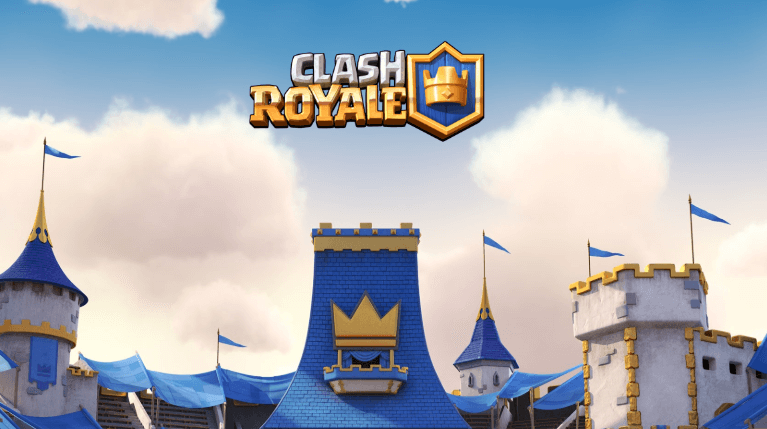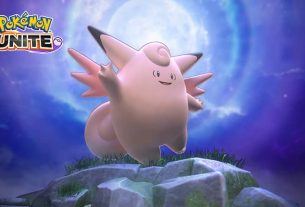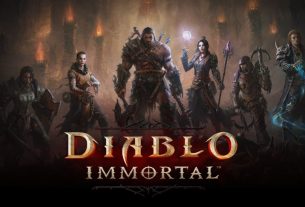To the untrained eye, Clash Royale may seem like an E-sports wanna be that is inferior to MOBAs. However, upon closer look, you will realize that Clash Royale is as complex as League of Legends (LoL) and DOTA themselves.
Clash Royale offers no laning, hero selection, item-building, banning, wave management, and other concepts that pros knew and love. But the game ingeniously combines the intensity of real-time strategy (RTS) and the intricate details of Collective Card Games (CCG). As such, players can easily learn the game, but lots of practice is needed to master it. And that’s why you need a reliable guide such as this.
Ranging from Deck-building to tracking your opponent’s cards, the skills you’ll need to master Clash Royale are undoubtedly never-ending. With this guide, you’ll know exactly where to start and which skills to master. This guide is meant for beginners and mid-gamers who want to improve their current skills.
For Those Who Already Played Other Card Games Before: Here’s What You Should Know
Deck Archetypes
In most MTG-inspired card games (i.e. those that utilize some form of mana cost), there are various deck archetypes. This includes Aggro, Control, Midrange, and Combo. On the other hand, Clash Royale has tons of possible deck archetypes, thanks to the RTS element of the game.
Mana Curve vs Average Elixir
In most card games, playing cards require a cost. For instance, MTG-inspired games make use of Mana while Yu-Gi-Oh makes use of Special Summon and tributes. Thanks to the RTS nature and the small deck size of Clash Royale, you only have to worry about the Average Elixir of your troops. However, you still have to make sure that you can play your cards right when you need to.
Deck Cycling
Unlike other card games, you will repeatedly draw the same troops in Clash Royale. Thus, you can deduce what cards are on your opponent’s hand and even rely on a single troop as your winning card.
How to Improve Your Win Rate in Clash Royale INSTANTLY
When I first played Clash Royale, I played mindlessly and used the same strategies over and over again. I did not realize that I was not getting the most out of my cards until I reached a point where I was losing a lot. I blamed the matchmaking system as I always got pitted against high-level opponents, but it turns out that a new mindset will save me trophies. Below are some strategies that you can try out for yourself:
1. Elixir Trade
You’ll probably realize this by yourself, but this one is worth mentioning because it can easily make you win. The concept is simple. Just counter your opponent’s cards with cheaper cards. Take note, however, that this will need you to master both positioning and card uses.
Good Elixir Trades can lead to both psychological and mechanical pressure. The pressure from trades will come in two forms – tower damage and surviving units.
- Surviving Units – if you counter your opponent with a cheaper troop and the troop survives, that troop will double as pressure to your opponent. You can throw in some support to initiate a counter push! An example is when you counter a badly-placed PEKKA with an Inferno Dragon. The Inferno Dragon will now be a threat to your opponent’s tower.
- Tower Damage – if your counters manage to land a few hits against your opponent’s crown towers, you’ll have an unfair advantage during the *2 elixir stage. You’ll have a lot more space for punishing your opponent while he tries to barely survive with what HP is left for his towers.
If you manage your Elixir Trades well, you’ll have a strong late game. But that is if you were able to chip away your opponent’s tower. The pressure that you’ll be able to exert can give you so many openings and eventually land you a three-crown win! Elixir Trade Wins are also cumulative. The more you beat your opponent in trades, the more difficult for them to fight back.
2. Track Your Opponent’s Elixir and Cards
One of the concepts that you should know is “cycling.” Unlike in a typical card game, you will repeatedly draw the same cards in Clash Royale. This is because the last card you played will be placed at the bottom of the deck. Hence, you’ll be able to draw the same card again after just four cards.
- Thanks to this cycling mechanic, you can keep track of cards on your deck and when your opponent’s cards are out of the cycle.
- Keep track of your winning card – your winning card(s), also known as your winning condition, is the card that can win you the game. The winning condition will be explained more later. For now, you can keep in mind that in the early arenas, the win condition will most likely be the Prince or the Giant.
- Track your opponent’s winning cards – your enemy will also have their own winning cards. Keep track of these and keep a counter handy.
- Track your opponent’s counters – your enemy will have some form of hard counter to your win condition. Keep track of this counter and only unleash your win condition if it is out of cycle.
Optional: Count the types of cards your opponent is playing – if your opponent has played 7 types of cards and you have not seen the 8th one, you may be fighting a bait deck. You can’t really do much, but it pays to be careful.
IMPORTANT: Keep track of your opponent’s elixir. It might be hard to know your opponent’s exact elixir, but it’s a good idea to have a clue. Learn to estimate your opponent’s elixir and watch out for high-cost cards because it’s the only surefire way to know that your opponent is out of elixir.
3. Push vs Punish
No matter what your deck archetype is, you will have to rely on two main strategies – push or punish.
Pushing is when you build up your forces by deploying slow units behind the King Tower. As the slow unit moves, you’ll deploy more units behind it to build up a massive push with a total elixir cost that is way more than 10 elixirs. It will be hard for your opponent to push back a wave of this size mainly because of the 10 elixir cap.
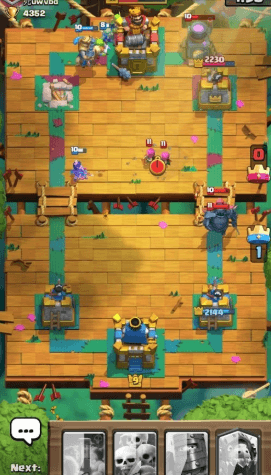
Punishing is when you initiate a rapid counteroffensive on the opposite lane of your opponent’s push. This approach lets you force your opponent to abandon the push or suffer a severely damaged tower. Take note, however, that your opponent’s push will still pressure you and it can still destroy one of your towers. The key here is to keep track of your opponent’s elixir and counters so that no troop can counter your punishment.
In the early arenas, those who got a Witch for their first epic should rely on this strategy. They can push by deploying either the Giant or the Witch behind the king tower and build up a sizable force. Meanwhile, players who have the Prince can use punishments as their main strategy. Just wait for your opponent to start a push and you’re good to go as long as their Skeleton Army is out of the cycle.
4. Understand Your Win Condition on Clash Royale
One of the most important parts of deck-building is understanding your win condition. Your win condition will be your game-changer and will usually be the card that gives you wins. While every card can technically help you win, focusing your strategy around your win condition will instantly improve your win rate. For starters, you should decide if you want to focus on pushing or punishing.
If you want to build up expensive attacks, your win conditions will be tanks like a Giant or a Golem. These units can usually severely damage a tower by themselves but are usually too slow to be used for punishing. If you want a deck that relies on punishing, your winning condition will be a unit that can do some serious damage against towers, like Prince and X-bow.
Once you decide what your winning condition is, you can take advantage of their strengths and supplement their weaknesses. For instance, it’s a good idea to bring Zap to protect your tanks from swarms and Inferno Dragons/Towers. Here are other examples:
- Not playing your Prince until your opponent is out of Elixir – this will let you severely damage a tower.
- Building up a push with a Golem and a Wizard – the Wizard will protect the Golem from troops and will help speed up taking down a tower.
- Launching a Goblin Barrel to pressure your opponent – if your opponent ignores the barrel, his tower will receive major damage. If he responds, you’ll win the trade unless he has Zap.
For Clash Royale Beginners: Learn Your Cards
Eventually, you’ll need to familiarize yourself with the stats of your favorite units. You’ll have to know everything from HP to damage potential. There’s nothing more frustrating than when you try to destroy a tower with the Rocket but only have 5HP remaining after your attack! This is a tough task to do especially because of frequent balance patches. So a good starting point is to memorize the damage of the spells you put in your deck.
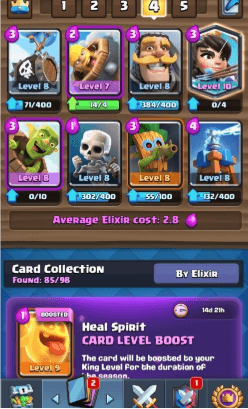
Learn About Deck Archetypes
There are five different types of decks in Clash Royale:
- Beatdown – these decks are push-oriented decks that rely on creating expensive pushes. If used correctly, they can take down a tower in one go and snowball into victory. Such decks can be powerful in late game if you manage to heavily damage towers or spam your opponent with pushes. Imagine the horror of two waves simultaneously pushing your towers! (Which is an extremely rare case though.)
- Cycle – cycle decks are the equivalent of aggro decks in other card games. These decks rely on cheap units to spam their win conditions. The philosophy is to use your win condition cards often and gradually chip away the health of your opponent’s tower.
- Control – similar to a tempo deck in other CCGs, this deck archetype has an answer to everything. Similar to a Cycle deck, this archetype relies on low Elixir costs to win the day. Once you get good with Elixir Trades, you should try out control decks.
- Bait – the perfect archetype for punishing your opponent, this archetype baits your opponent to exhaust his counters to your Winning Condition.
- Siege – one of the most fun deck archetypes to play. These decks rely on buildings to pound your opponents into submission. Take note, however, that these decks are easy to punish, so you better be careful when playing buildings.
How to Build a Deck on Clash Royale
Building a deck on Clash Royale is a very complex matter. It takes experience to create a deck that will suit your play style, but there is a general format that you can follow. Here are the cards that you should have:
1. Win Condition – as explained earlier, your Win Condition is a card that can win you the game by reliably doing tower damage. Some examples include:
-
- Elixir Golem
- Goblin Barrel
- Battle Ram
- Royal Giant
- Wall Breakers
- Mortar
- Royal Hogs
- Giant
- Balloon
- Golem
- Lava Hound
- X-Bow
- Miner
- Sparky
- Hog
- Graveyard
- Ram Rider
- Prince
- PEKKA
2. Small Spell – a spell that complements the strengths and compliments the weakness of your Win Condition. Examples include:
-
- Snow Ball
- Zap
- Royal Delivery
- Rage
- Clone
- Tornado
3. Large Spell – a powerful spell that further improves the capabilities of your deck like:
-
- Poison
- Freeze
- Lightning
- Fireball
- Rocket
4. Bruiser – a cheap melee unit that can protect your ranged units. Examples include:
-
- Snow Golem
- Knight
- Valkyrie
5. Support – an extra unit that will help you defend, do more damage, or just misdirect your opponent. Most other units fall into this category. Examples include:
-
- Skeletons
- Archer
- Firecracker
- Snow Spirit
- Executioner
- Dart Goblin
- Magic Archer
6. Anti-tank – a unit that can reliably take down tanks and even help you push.
-
- Inferno Dragon
- Hunter
- Inferno Tower
- Mini PEKKA (arguably)
- Wizard (arguably)
7. Horde – a swarm of units that can easily overwhelm single-target units.
-
- Royal Recruits (unreliably high cost)
- Skeleton Army
- Skeleton Guards
- Rascals
- Minion Horde
8. Second X – a card that fits on any of the above categories. This is also the right slot if you want to take an extra building.
Take note that this deck template is only a suggestion. You can spam your deck with spells and still win depending on your style or strategy.
General Tips For Clash Royale Beginners
Don’t Split Push Often – come on, this is neither LOL nor DOTA. Yes, chipping away through both towers is good, but only if they are targets of opportunities. In a nutshell, it will be better if you can focus your damage on one tower, but damaging the other tower is not bad if it is from a counter push.
Don’t Activate the King – a common beginner mistake is to hit the king tower directly with spells. If you do so, the King will activate its defenses and will defend both crown towers. Unless you want a handicap, this is a really bad idea.
Don’t Sling Spells – just because it works on MTG, it does not mean that it will also work on Clash Royale. If you want to maximize output from your spells, use them to hit both a tower and some units.
Choose only a few cards to master – using cards is simple, but it takes resources to max out your cards. Thus, you should first choose a few cards to master and max out before building decks that revolve around cards that can’t be used very well.
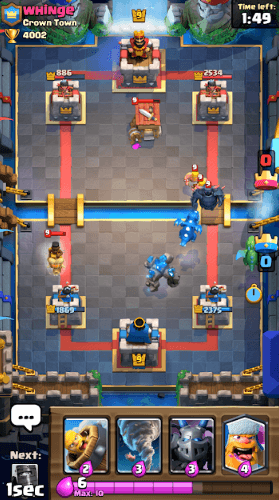
Don’t Be Greedy with your Deck – slapping all epic cards to your deck can result in an epic failure. Don’t use rarity alone when building your deck.
Don’t Be Greedy with Crowns – a one-crown win is much better than a loss. Don’t attempt going for more if you run the risk of losing.
Don’t Ignore Units – even a measly Princess can whittle your tower down if left unchecked. In high-level arenas, even 1 tower HP can make a difference!
Last but not the least, play moderately! Clash Royale’s algorithm has a tendency to match beginners and mid-gamers to high-level opponents if you play for too long.

